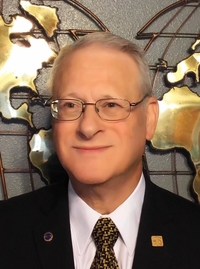Be vigilant when fundamental principles are compromised in emergency situations

In my previous message I stressed the need to be flexible and not too exacting in the application of bylaws that would seriously hamper the work or even the very existence of organizations dealing with the current pandemic. Now the pendulum is swinging the other way. We need to utilize parliamentary procedure to protect all against those who would seize power with the motto, “Never let a good crisis go to waste.”
Tyrants rise to power in times of crisis when there is an urgent need to solve an immediate problem and the members’ rights are then compromised in the name of emergency and efficiency. While this principle could be applied in political settings, my focus here is on the organizations in which we participate as members and parliamentarians.
Two electronic conventions
I recently attended two conventions conducted electronically with hundreds of delegates participating on either Zoom or another similar platform.
In the first convention, my responsibility was recording the minutes and I was not a voting delegate. In this organization there was typically little debate or controversy at its conventions. All reports and speeches were pre-recorded and the election was well conducted with a separate and secure electronic method. The problem that I saw from a parliamentarian’s perspective was that there was no opportunity even provided for any debate or voting other than in the election of officers.
While the electronic platform had a chat function, this was utilized for chat between the delegates, and even others like me who had no rights to the floor.
The credentials report and the convention rules were adopted by the board the night before and the delegates were not given chance to debate or vote on them. It was customary to elect by acclamation the outgoing president to be an honorary president, but this did not take place. It was simply announced by the vice chair that the president had been elected by acclamation when there no such action taken. If it was on the ballot as it was announced that it would be, it was not mentioned in the tellers’ report.
Voting was allowed but no debate
The second organization historically had considerable controversy and debate at its conventions. Voting was allowed but no debate. Again the chat function was cluttered with chats between delegates that drowned out most of those attempting to address the chair.
I served as a delegate and member of the rules committee. While the rules committee was under the impression that the proposed rules would be open to debate and amendment before adoption, this was not the case. The vote on the rules was taken before any debate. The chair acknowledged the many points of order raised and gave the explanation that debate was not practical under the circumstances, thus effectively ruling the points of order not well taken. My attempt to appeal the decision of the chair through the chat function was ignored.
The lengthy resolution detailing the goals and objectives of the organization, which was typically hotly debated, was presented for an up or down vote without any debate or opportunity for amendment.
In neither organization was there any authorization for an electronic convention in their bylaws. They cited either emergency gubernatorial proclamations applying to government agencies, or a nonprofit corporate statute that conferred emergency power on the board of directors when a quorum of the directors could not meet in an emergency.
As a parliamentarian I was appalled
While many thought the conventions were run very efficiently, as a parliamentarian I was appalled.
Parliamentary procedure and specifically Robert’s Rules of Order Newly Revised is designed to maintain a balance of power between the various parties involved in a deliberative assembly. We must ever be vigilant when the fundamental principles of parliamentary procedure are being compromised in emergency situations.

